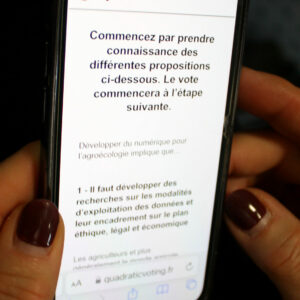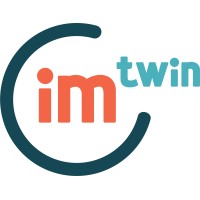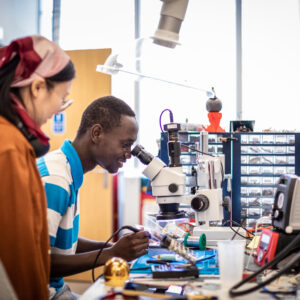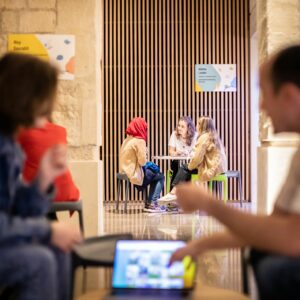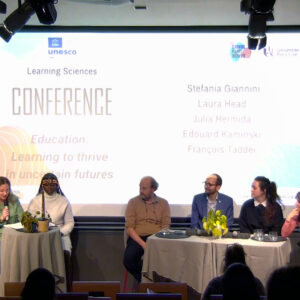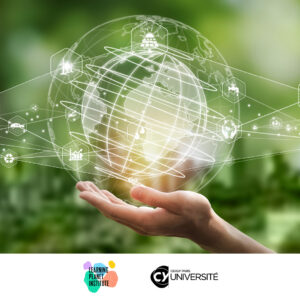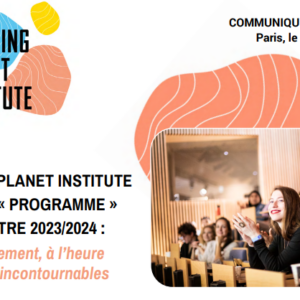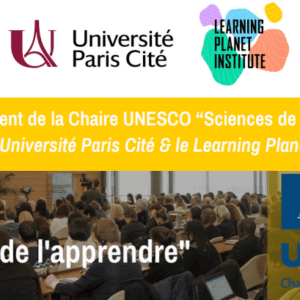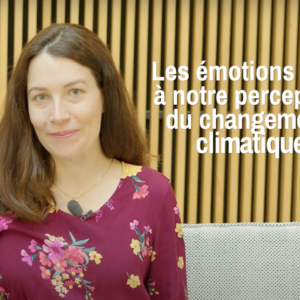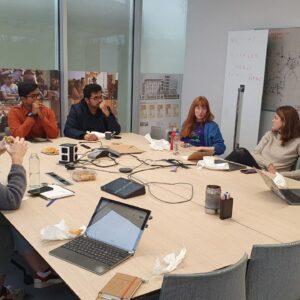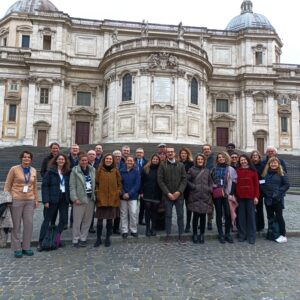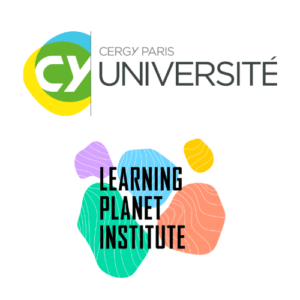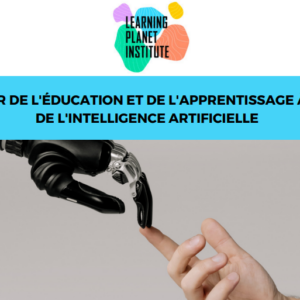At the Learning Planet Institute, we believe in learning transitions through interdisciplinarity, citizen science, collective intelligence and artificial intelligence (AI). We build scientific theories, methods and tools to learn about planetary transitions, as well as about the transitions of learning. Earlier this year, our workshop on « Ethics of AI » gathered philosophers, mathematicians, computer scientists and sociologists to probe the ethics of Large Language Models (LLMs).
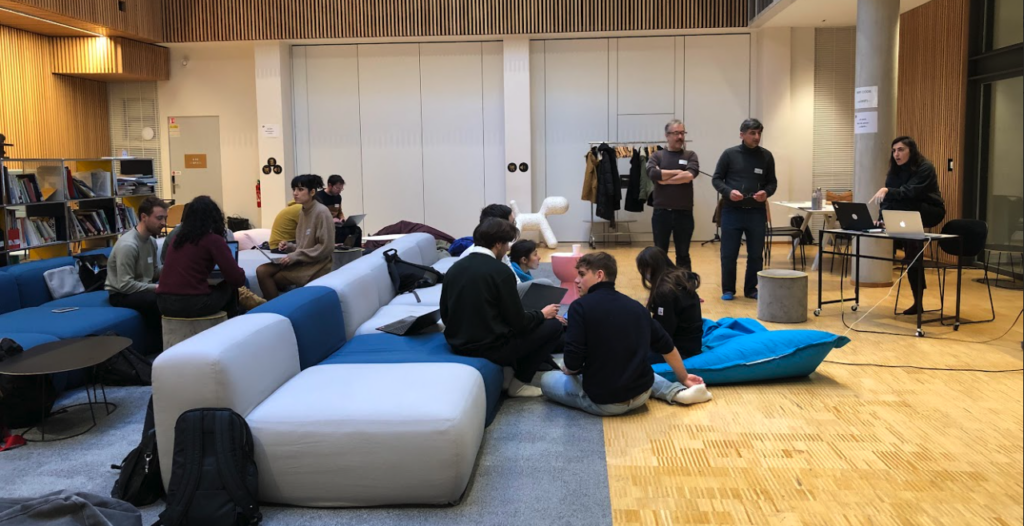
On the 16th & 17th of January 2024, the R&D department of the Learning Planet Institute hosted a workshop on the ethical dimensions of responses provided by Large Language Models (LLMs), such as ChatGPT, to sensitive questions and moral dilemmas of users.
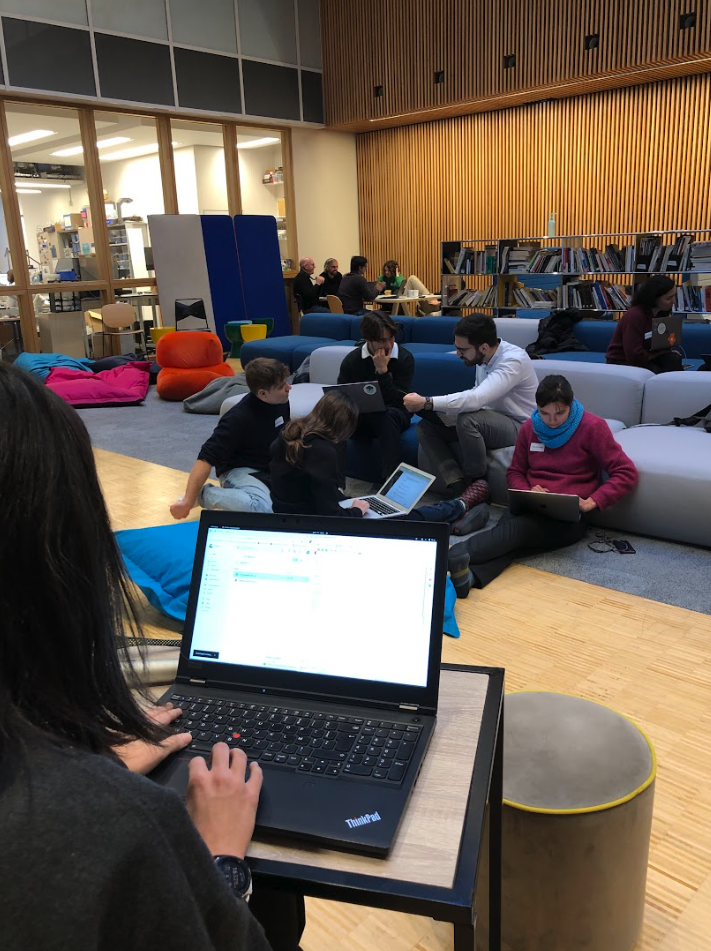
Co-chaired by the Learning PIanet Institute President Francois Taddei and Martin Gibert from Université de Montréal, this workshop gathered 30 philosophers, mathematicians, computer scientists and sociologists, personally invited for the occasion. Each participant was eager to contribute and participate in the interactive lectures, hands-on sessions and lively discussions.
These 2 days finally resulted in great outputs. The general consensus was positive. Yes, we can indeed learn ethics from AI, and the joint evolution of human and AI ethics is a key element for the future of our planet.
Here is a glimpse of the workshop:
A thought-provoking discussion on Large Language Models at the last LearningPlanet Festival
The LearningPlanet Festival is an annual gathering where students, teachers, academics, artists and dreamers make learning a means to foster a fairer and ecological society. During this 5th edition, we explored insightful trends in education, along with new learning models. On the International Day of Education, panelists and participants embarked on a journey into the ethical dimension of Large Language Models, a discussion fueled by the previously organised workshop on this theme at the Institute.
Take the time to listen to the replay here:
About the Learning Transitions Research Unit (UR LT)
Curious about AI ethics and other emergent topics related to transitions? Keep in touch with the Research Unit Learning Transitions (UR LT) at the Learning Planet Institute. Human-AI collaboration is a topic we are researching and deploying.
The Learning Transitions Research Unit (UR LT) is the research component of the collaboration established in 2023 between CY Cergy Paris University and the Learning Planet Institute.
Hosted on the campus of the Learning Planet Institute, in Paris, the UR LT aims to develop scientific theories, methods, and tools rooted in interdisciplinarity, citizen sciences, collective intelligence, and Artificial Intelligence (AI), with the goal of advancing systemic approaches to planetary transitions.
The UR LT is designed to welcome researchers for a given period, in order to initiate interdisciplinary research projects with other researchers who share similar interests in the field of transitions.
Éthique des grands modèles de langage : l’IA peut-elle apprendre la morale de l’homme et vice versa ?
Au Learning Planet Institute, nous croyons aux transitions d’apprentissage grâce à l’interdisciplinarité, aux sciences participatives, à l’intelligence collective et à l’intelligence artificielle (IA). Nous élaborons des théories, des méthodes et des outils scientifiques pour étudier les transitions planétaires, ainsi que les transitions des apprentissages. En début d’année, notre séminaire sur « l’éthique de l’IA » a réuni des philosophes, des mathématicien·nes, des informaticien·nes et des sociologues afin d’étudier l’éthique des grands modèles de langage (« Large Language Models », ou « LLM »).
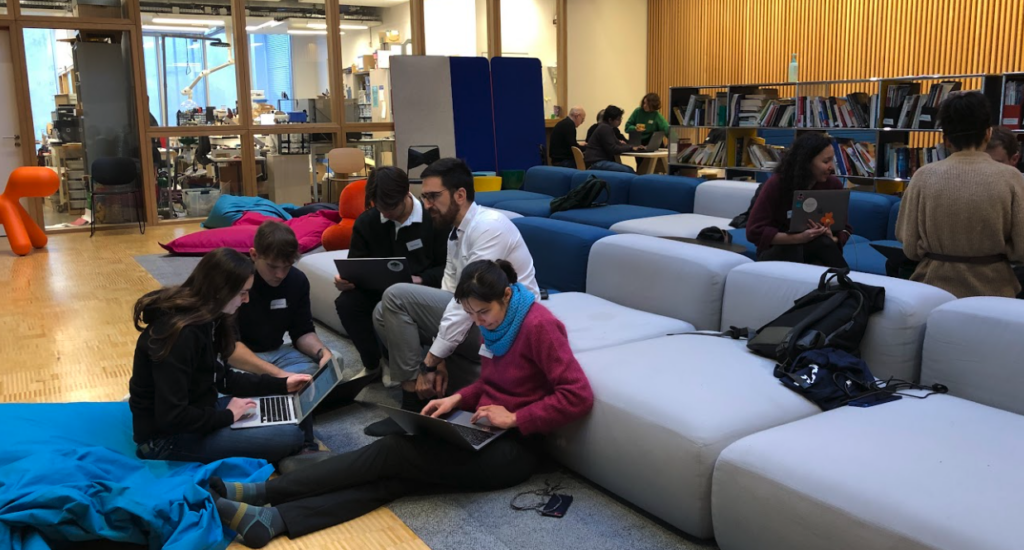
Les 16 et 17 janvier 2024, le département R&D du Learning Planet Institute a organisé un séminaire sur les dimensions éthiques des réponses fournies par les grands modèles de langage, tels que ChatGPT, aux questions sensibles et aux dilemmes moraux des utilisateurs.
Coprésidé par François Taddei, président du Learning Planet Institute, et Martin Gibert, de l’Université de Montréal, cet événement a accueilli 30 philosophes, mathématicien·nes, informaticien·nes et sociologues, personnellement invité·es pour l’occasion. Chaque participant·e était enthousiaste à l’idée de contribuer et de participer aux exposés interactifs, aux sessions pratiques et aux discussions nourries sur le sujet.
Ces deux jours ont abouti à d’excellents résultats. Le consensus général était positif. Oui, nous pouvons apprendre l’éthique de l’IA, et l’évolution conjointe de l’éthique humaine et de l’éthique de l’IA est un élément clé pour l’avenir de notre planète.
Découvrez ici un aperçu de la rencontre :
Une discussion qui donne à réfléchir lors du dernier festival LearningPlanet
Le festival LearningPlanet est un rendez-vous annuel où étudiant·es, enseignant·es, universitaires, artistes et innovateurs·rices font de l’apprentissage un moyen de promouvoir une société plus juste et plus écologique. Lors de cette cinquième édition, nous avons exploré les tendances les plus récentes en matière d’éducation, ainsi que de nouveaux modèles d’apprentissage. À l’occasion de la Journée Internationale de l’Éducation, les panélistes et les participant·es se sont embarqué·es pour un voyage dans la dimension éthique des grands modèles de langage, une discussion alimentée par le séminaire organisé précédemment sur ce thème à l’Institut.
Prenez le temps d’écouter la vidéo – en anglais – en différé ici :
À propos de l’Unité de Recherche Learning Transitions (UR LT)
L’Unité de Recherche Learning Transitions (UR LT) incarne le volet recherche de la collaboration établie en 2023 entre CY Cergy Paris Université et le Learning Planet Institute.
Hébergée sur le campus du Learning Planet Institute, à Paris, l’UR LT a pour objectif d’élaborer des théories, méthodes et outils scientifiques, fondés sur l’interdisciplinarité, les sciences participatives, l’intelligence collective et l’intelligence artificielle, en vue de développer des approches systémiques aux transitions planétaires.
L’UR LT a pour vocation d’accueillir des chercheurs, pour une période déterminée, afin de monter des projets de recherche interdisciplinaire avec d’autres chercheurs partageant les mêmes centres d’intérêt autour des transitions.
